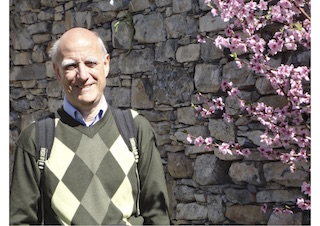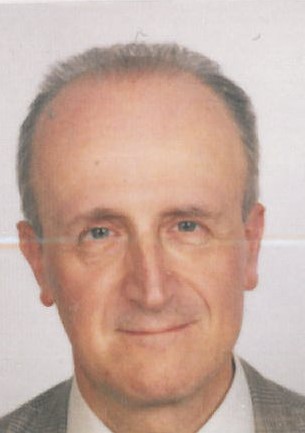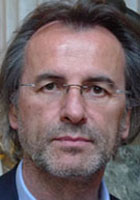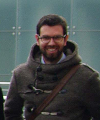Studying at the University of Verona
Here you can find information on the organisational aspects of the Programme, lecture timetables, learning activities and useful contact details for your time at the University, from enrolment to graduation.
Academic calendar
The academic calendar shows the deadlines and scheduled events that are relevant to students, teaching and technical-administrative staff of the University. Public holidays and University closures are also indicated. The academic year normally begins on 1 October each year and ends on 30 September of the following year.
Course calendar
The Academic Calendar sets out the degree programme lecture and exam timetables, as well as the relevant university closure dates..
| Period | From | To |
|---|---|---|
| Sem. IA | Sep 28, 2015 | Nov 8, 2015 |
| Sem. IB | Nov 9, 2015 | Jan 17, 2016 |
| Sem. IIA | Feb 22, 2016 | Apr 24, 2016 |
| Sem. IIB | Apr 25, 2016 | Jun 5, 2016 |
| Session | From | To |
|---|---|---|
| Sessione Estiva | Jun 6, 2016 | Jul 31, 2016 |
| Sessione Autunnale | Sep 1, 2016 | Sep 30, 2016 |
| Sessione Invernale | Jan 23, 2017 | Feb 25, 2017 |
| Session | From | To |
|---|---|---|
| Sesione Estiva | Jul 8, 2016 | Jul 15, 2016 |
| Sessione Autunnale (Solo Scienze del Serv. Sociale: Ven. 04/11/2016) | Nov 21, 2016 | Nov 26, 2016 |
| Sessione Invernale | Apr 3, 2017 | Apr 8, 2017 |
| Period | From | To |
|---|---|---|
| Festa di Ognissanti | Nov 1, 2015 | Nov 1, 2015 |
| Festa dell'Immacolata | Dec 8, 2015 | Dec 8, 2015 |
| Vacanze Natalizie | Dec 23, 2015 | Jan 6, 2016 |
| Vacanze Pasquali | Mar 24, 2016 | Mar 29, 2016 |
| Festa della Liberazione | Apr 25, 2016 | Apr 25, 2016 |
| Festa dei Lavoratori | May 1, 2016 | May 1, 2016 |
| Festa del S. Patrono S. Zeno | May 21, 2016 | May 21, 2016 |
| Festa della Repubblica | Jun 2, 2016 | Jun 2, 2016 |
| Vacanze Estive | Aug 8, 2016 | Aug 15, 2016 |
Exam calendar
Exam dates and rounds are managed by the relevant Humanistic Studies Teaching and Student Services Unit.
To view all the exam sessions available, please use the Exam dashboard on ESSE3.
If you forgot your login details or have problems logging in, please contact the relevant IT HelpDesk, or check the login details recovery web page.
Should you have any doubts or questions, please check the Enrollment FAQs
Academic staff
 alex.arcozzi@univr.it
alex.arcozzi@univr.it

Avezzu' Guido
 guido.avezzu@univr.it
guido.avezzu@univr.it
 augusto.barbi@univr.it
augusto.barbi@univr.it
 alberto.cavarzere@univr.it
alberto.cavarzere@univr.it

Chiecchi Giuseppe
 giuseppe.chiecchi@univr.it
giuseppe.chiecchi@univr.it
 +39 045802 8117
+39 045802 8117

Mastrocinque Attilio
 attilio.mastrocinque@univr.it
attilio.mastrocinque@univr.it
 +39 045802 8386
+39 045802 8386
 linda.napolitano@univr.it
linda.napolitano@univr.it
 carlotta.salettisalza@univr.it
carlotta.salettisalza@univr.it
 giorgia.totola@univr.it
giorgia.totola@univr.it
 ivan.valbusa@univr.it
ivan.valbusa@univr.it
 gianmaria.varanini@univr.it
gianmaria.varanini@univr.it
Study Plan
The Study Plan includes all modules, teaching and learning activities that each student will need to undertake during their time at the University.
Please select your Study Plan based on your enrollment year.
1° Year
| Modules | Credits | TAF | SSD |
|---|
One course to be chosen among the following2° Year activated in the A.Y. 2016/2017
| Modules | Credits | TAF | SSD |
|---|
One course to be chosen among the followingOne/two courses to be chosen among the followingOne course to be chosen among the followingOne course to be chosen among the following3° Year activated in the A.Y. 2017/2018
| Modules | Credits | TAF | SSD |
|---|
Two/four courses to be chosen among the followingOne/two courses to be chosen among the following| Modules | Credits | TAF | SSD |
|---|
One course to be chosen among the following| Modules | Credits | TAF | SSD |
|---|
One course to be chosen among the followingOne/two courses to be chosen among the followingOne course to be chosen among the followingOne course to be chosen among the following| Modules | Credits | TAF | SSD |
|---|
Two/four courses to be chosen among the followingOne/two courses to be chosen among the following| Modules | Credits | TAF | SSD |
|---|
Legend | Type of training activity (TTA)
TAF (Type of Educational Activity) All courses and activities are classified into different types of educational activities, indicated by a letter.
History of Medieval Philosophy(p) (2016/2017)
Teaching code
4S01316
Teacher
Coordinator
Credits
6
Language
Italian
Scientific Disciplinary Sector (SSD)
M-FIL/08 - HISTORY OF MEDIEVAL PHILOSOPHY
Period
Sem. IIB dal Apr 24, 2017 al Jun 10, 2017.
Learning outcomes
The course of History of medieval philosophy aims to equip students with an in-depth knowledge of some of the most important topics of the philosophical reflection of the Middle Ages. In doing so, the course will privilege a dialogical stance towards the main philosophical issues of our time.
By the end of the course, students are expected to possess (a) a sufficient knowledge of all the subjects addressed during the lessons, (b) a sufficient capacity to critically read the texts, and finally, (c) sufficient communication skills that will enable them to critically master and express the concepts acquired and/or elaborated during the course, by means of using a correct and sophisticated philosophical language.
Program
Desire, happiness, and good in medieval philosophy
The course will provide an in-depth analysis of these three key ethical notions, how they are inextricably intertwined, and how they are differently dealt with according to three great medieval authors: Augustine, Aquinas, and Boethius. Furthermore, the notion of desire will be also studied from a prospectival point of view, in a dialogue between medieval philosophers and contemporary authors, notably Lacan. Is desire actually bound to the fundamental category of relation? The answer to this question proves decisive in order to assess whether ethics are actually possible or not.
Classes will provide students with an in-depth analysis of the course topics. Manuals will not be used, therefore students are expected to already possess the basic competences in medieval philosophy provided by the second module of the course of History of philosophy 1. In order to analyze the course topics, the reading and the punctual commentary of medieval texts will prove essential. Texts can be read also in the original language, in which they were written. The course will also use the e-learning website of the university, where the audio files of the lessons and all the texts that are not part of the course bibliography will be uploaded. The audio files of the lessons are an essential and compulsory part of the course bibliography. Students are warmly encouraged to write a paper, which it will be read and discussed in the classroom.
Meeting hours for students are scheduled during the whole academic year: days and hours may be found at the personal webpage of the teacher, and are constantly updated. Fixing a personal appointment is not compulsory. Dates and hours of the single lessons as well as their topics are provided before the beginning of the course; any variation will be promptly communicated in the News section of the teacher’s personal webpage.
Students who will not attend classes can choose a more personal approach to the course (to be jointly decided with the teacher), if they wish so, and study one of more additional text(s) beside those listed in the course bibliography.
The subjects and the contents of the books listed in the general bibliography, as well as the lessons and tests possibly performed during the course, are coherent with the program. Further material may be uploaded on the e-learning website of the university.
Presumptive calendar of course lessons
9/5 – Introduction to the course subjects
10/5 – Augustine: the many forms of desire
11/5 – Shipwreck in front of an audience – The law of desire
15/5 – Enjoyment as the (homicidal) closure of the essential scission of desire: “The Silence of the Lambs”, by Jonathan Demme
17/5 – Lacan: enjoyment and law, 1
18/5 – Lacan: enjoyment and law, 2 – The transcendental nature of desire in the history of metaphysics: Plato
23/5 – The transcendental nature of desire in Plato’s Banquet
24/5 – From Plato’s Banquet to Augustine’s notion of homo capax Dei
25/5 – The transcendental nature of desire in Augustine: the meaning of the notion of God as the summum bonum
30/5 – Happiness in Augustine: the De beata vita
31/5 – Fallacies of happiness in Augustine
5/6 – The ethics of virtue in Aristotle and Aquinas – Aquinas: Good and being, good and God
6/6 – Aquinas: acting and its goal – What does happiness consist of?
7/6 – Boethius: happiness, desire, and self-discovering, 1
8/6 – Boethius: happiness, desire, and self-discovering, 2
| Author | Title | Publishing house | Year | ISBN | Notes |
|---|---|---|---|---|---|
| Agostino | La Città di Dio | Rusconi | 1998 | ||
| Boezio | La consolazione di Filosofia | Einaudi | 2010 | ||
| Agostino | La felicità. La libertà (Edizione 2) | Rizzoli | 1997 | ||
| Jacques Lacan | Scritti | Einaudi | 1974 | ||
| Tommaso | Summa Theologiae | Edizioni Studio Domenicano | 1985 |
Examination Methods
In order to pass the exam, students will need to show that:
- they possess a thorough knowledge of the authors and the subjects studied during the course;
- they are capable to read and comment a medieval philosophical text by operating autonomously and using an appropriate and precise philosophical language.
The competence of all students, either those who attended the course or those who didn’t, will be ascertained by means of an oral examination about the authors, the texts and the subjects discussed during the classes. The final score will be expressed in /30s.
Type D and Type F activities
Modules not yet included
Career prospects
Module/Programme news
News for students
There you will find information, resources and services useful during your time at the University (Student’s exam record, your study plan on ESSE3, Distance Learning courses, university email account, office forms, administrative procedures, etc.). You can log into MyUnivr with your GIA login details: only in this way will you be able to receive notification of all the notices from your teachers and your secretariat via email and also via the Univr app.
Student mentoring
Linguistic training CLA
Gestione carriere
Practical information for students
Documents
| Title | Info File |
|---|---|
|
|
pdf, it, 325 KB, 16/07/24 |
|
|
pdf, it, 212 KB, 02/05/23 |
|
|
pdf, it, 131 KB, 02/05/23 |
Graduation
Documents
| Title | Info File |
|---|---|
|
|
pdf, it, 109 KB, 12/07/24 |
|
|
pdf, it, 112 KB, 14/05/24 |































